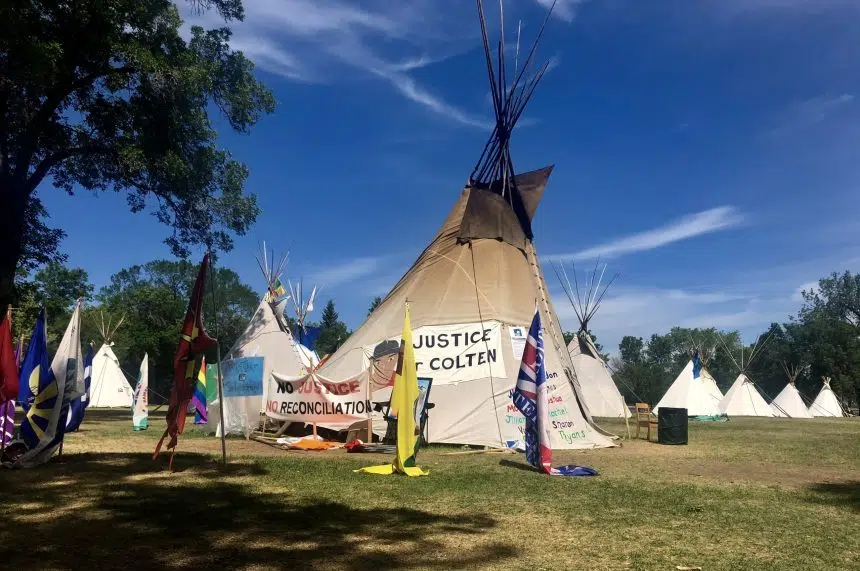Another layer of Saskatchewan’s courts is rejecting constitutional arguments over the “Justice for Our Stolen Children” camp that occupied the west lawn near the Legislative Building for weeks in 2018.
The camp was first established in February 2018 and continued into the summer with shelters like teepees and tents and a sacred fire.
The Government of Saskatchewan along with the Provincial Capital Commission (PCC), the group in charge of Wascana Park, tried several times to get the protesters to leave, including posting notices of bylaws, conversations and finally bringing the Regina Police Service in to remove the structures. On that day in June, six people were arrested.
Last week, a decision was released by the Saskatchewan Court of Appeal about a then-Court of Queen’s Bench decision that had concluded the Charter rights of the camp and those arrested were not violated.
The protesters were seeking a declaration from the court that their freedom of expression and right to be free from arbitrary detention and imprisonment were violated. The Court of Queen’s Bench (now King’s Bench) justice disagreed and didn’t make the declaration.
The protesters appealed the decision, claiming the judge reversed the onus of proof, didn’t take reconciliation into account in the decision, and made unsustainable findings of fact in the matter of their arrest and detention.
In the decision from the Court of Appeal, written by Chief Justice Robert Richards and agreed to by Justice Peter Whitmore and Justice Lian Schwann, none of the three arguments put forth by the appellants were agreed to and the case was dismissed.
The Chief Justice disagreed the onus of proof was reversed. He admitted that taking the concept of reconciliation into account can change the weight of some factors, but he also wrote that reconciliation doesn’t displace all other considerations involved.
And, going over the facts of their arrest, the justice didn’t agree that the protesters were unlawfully arrested or detained.











